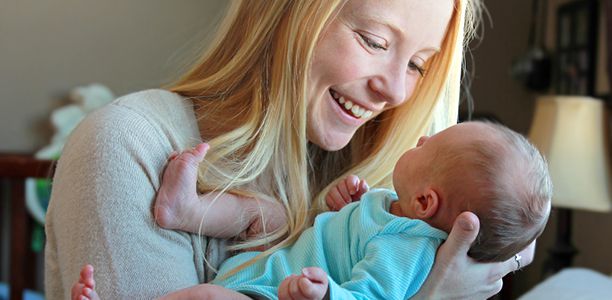
In a world first, published in BMJ Open, new Australian research from Monash University has shown that post-natal mental health problems can be reduced by up to two-thirds through an innovative program.
The program, called What Were We Thinking! (WWWT), was developed by the Jean Hailes Research Unit (JHRU) in the School of Public Health and Preventive Medicine.
JHRU director Professor Jane Fisher and Senior Research Fellow Dr Heather Rowe applied a new way of thinking to the prevention of postpartum common mental disorders. Rather than the traditional focus on a woman’s characteristics and health, this program focuses on the people nearest to her: her partner and her baby.
The WWWT program focuses on giving parents the knowledge and skills they need to manage two common problems that cause psychological distress: a baby with crying and sleeping difficulties and arguments about who does what at home.
“WWWT is so effective because of its simplicity and its relevance to every parent with a first baby. The messages are consistent across the program,” Professor Fisher said.
WWWT has three components. About six weeks after giving birth, women, their partners and their babies attend a one-day seminar with other local families. A Maternal and Child Health nurse trained in the WWWT program guides them through topics such as how to soothe and settle the baby, how to negotiate the division of household tasks fairly and how to encourage and not criticise each other. The parents take printed materials home to review. At later visits to nursing centres to check the baby’s health, the MCH nurse asks how parents are using the WWWT skills and helps them to problem-solve.
This is the world’s first cluster randomised controlled trial of this program (funded by the National Health and Medical Research Council) — among the women who completed the full WWWT program, depression and anxiety were reduced by more than 60%.
“The program is readily integrated into local maternal and child health nursing services at low cost. Nurses require only two days of training to learn how to use the program,” Professor Fisher said.
“This is a modest investment for the major benefit of preventing mental health problems among the tens of thousands of women who give birth to a first baby each year,” Dr Rowe said.
A free blog and app linked to the WWWT program have been developed with partner organisation Jean Hailes for Women’s Health: www.whatwerewethinking.org.au.
“One out of eight new mothers will experience a mental health problem, including anxiety and depression,” Janet Michelmore, Executive Director at Jean Hailes for Women’s Health said.
“The WWWT program enhances current essential primary care services and can be integrated seamlessly. WWWT, including the blog and app, offers simple and supportive solutions to the common challenges new parents face.”
(Source: Monash University, BMJ Open)









